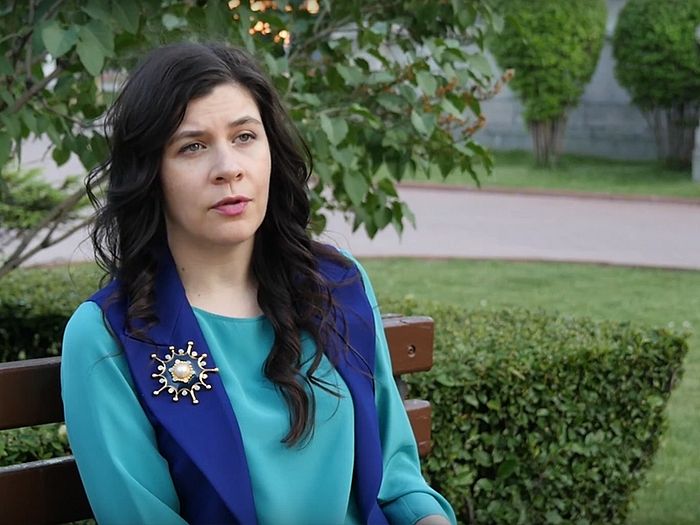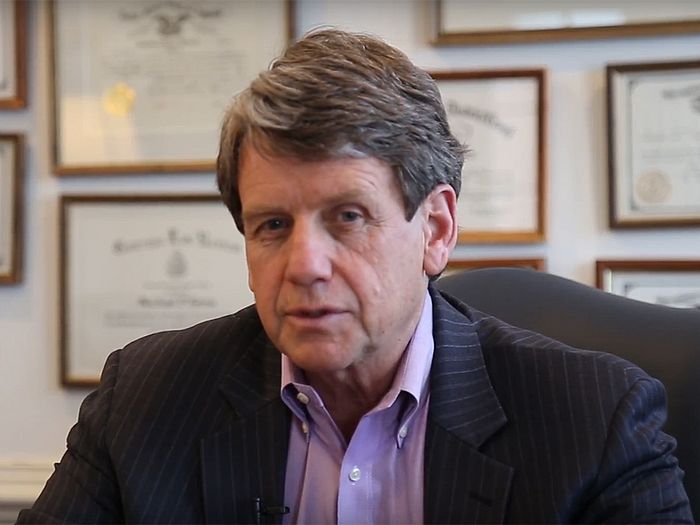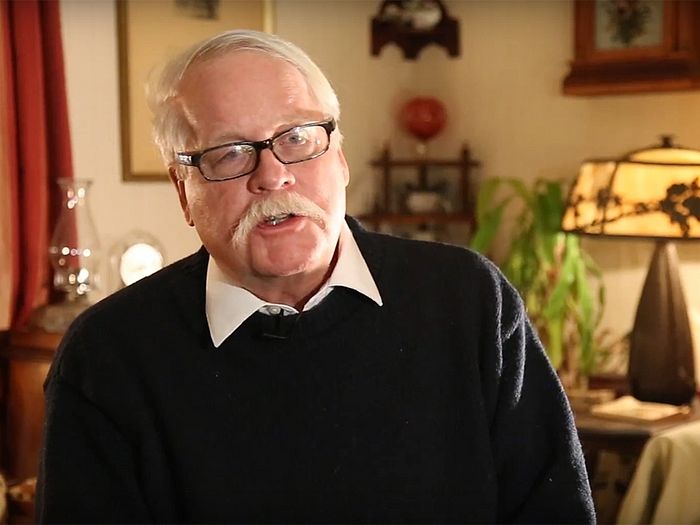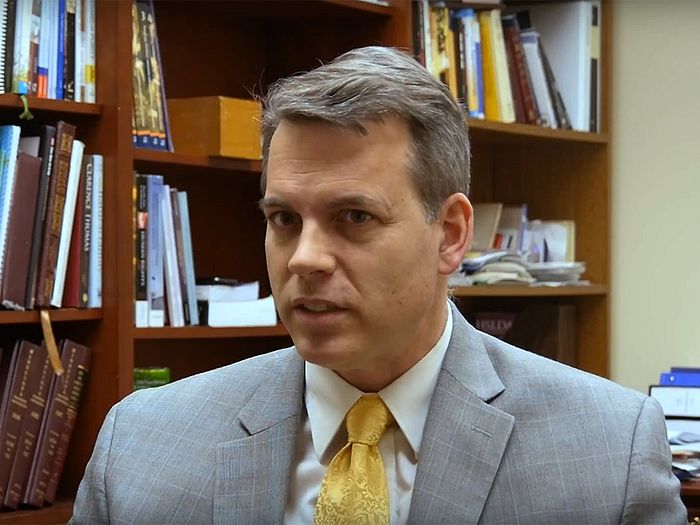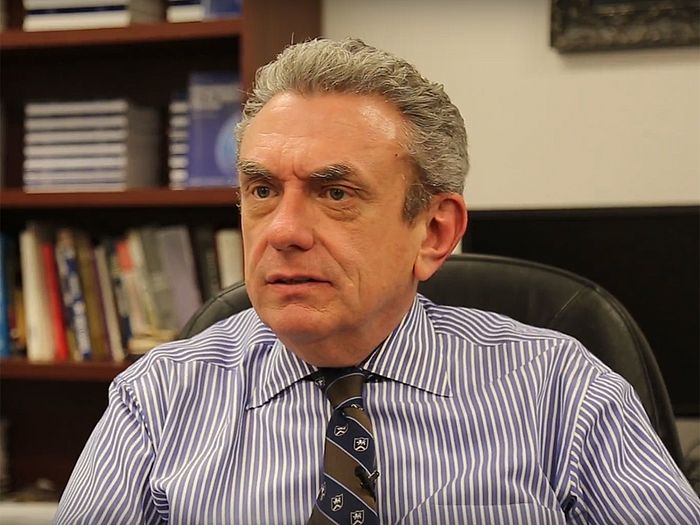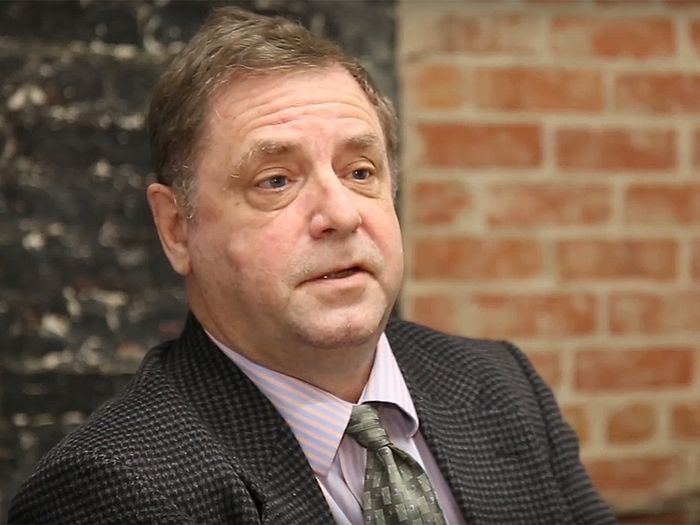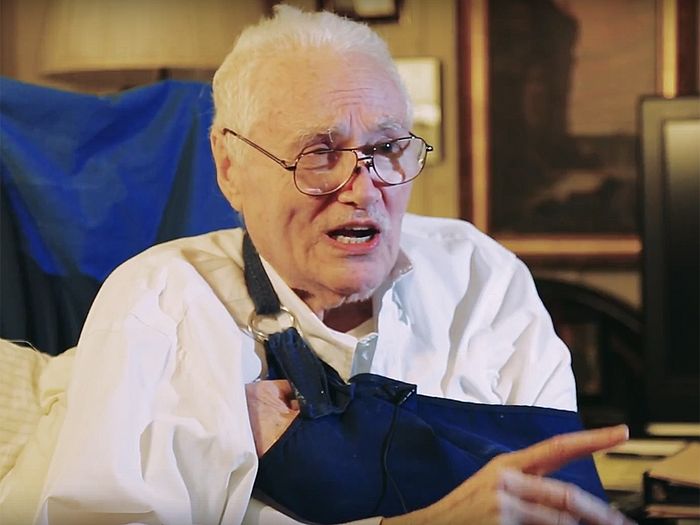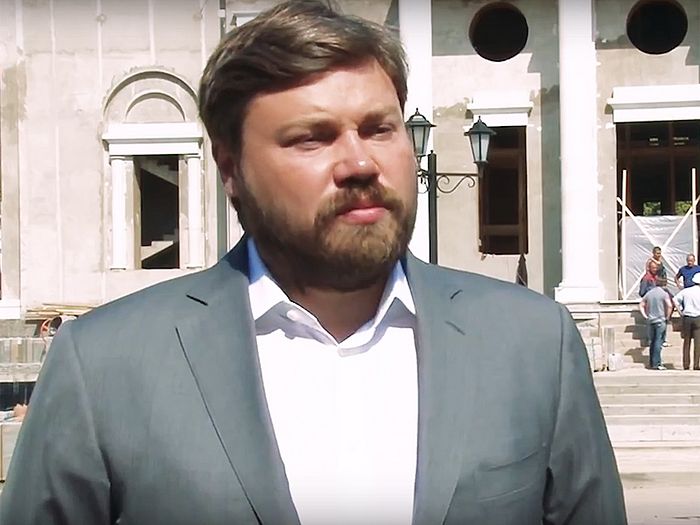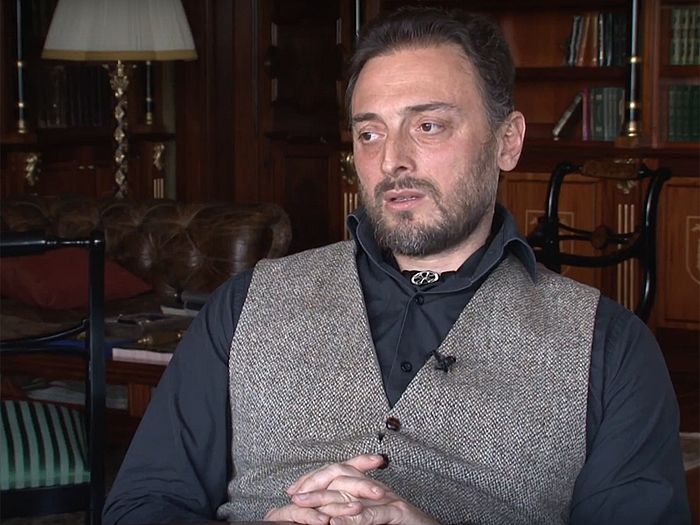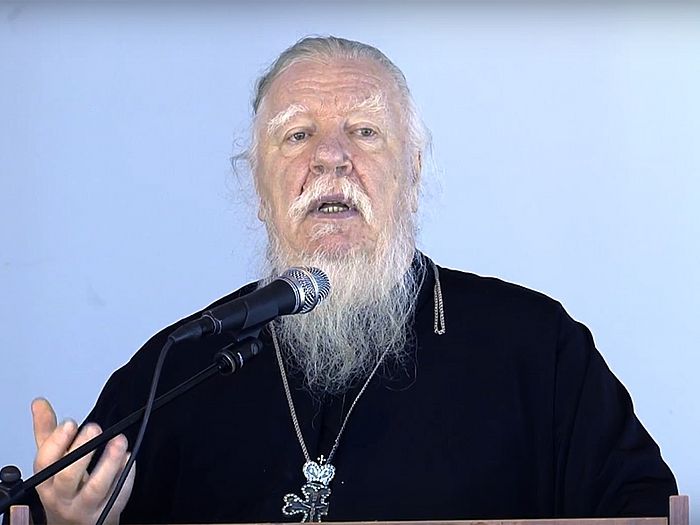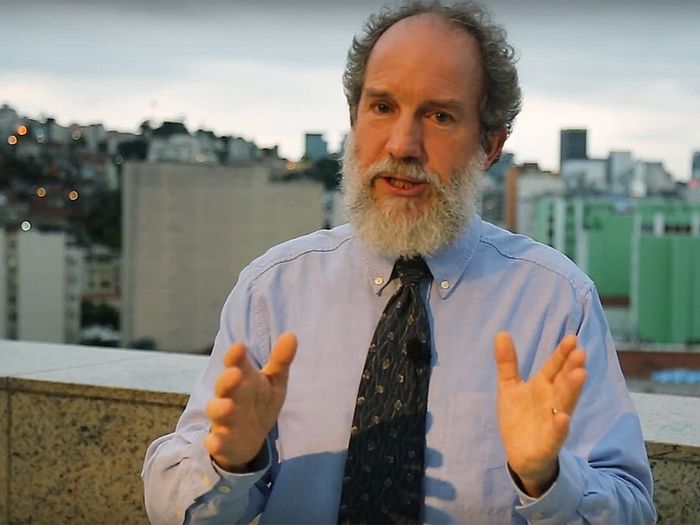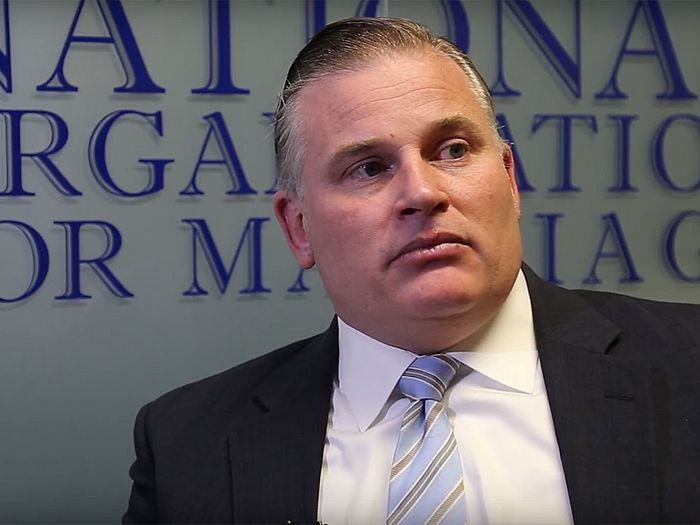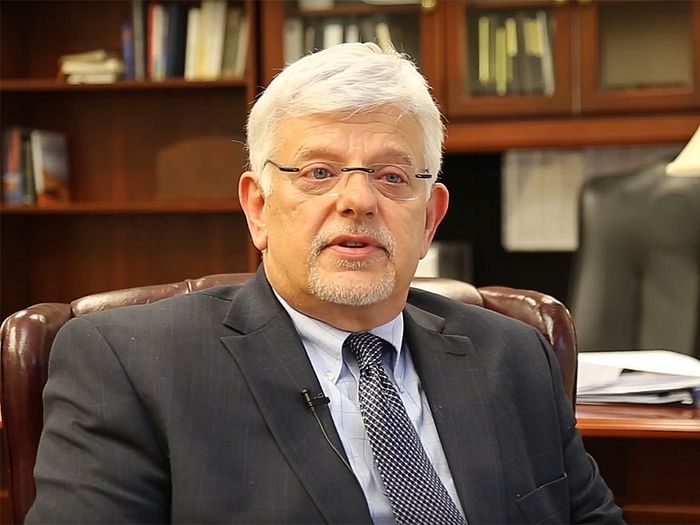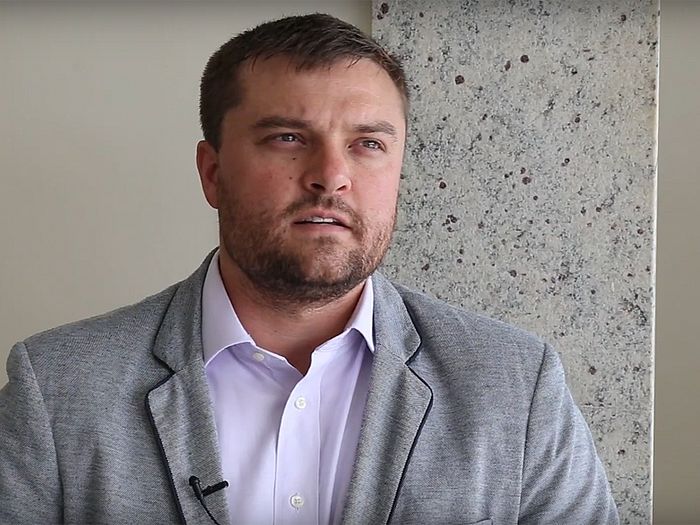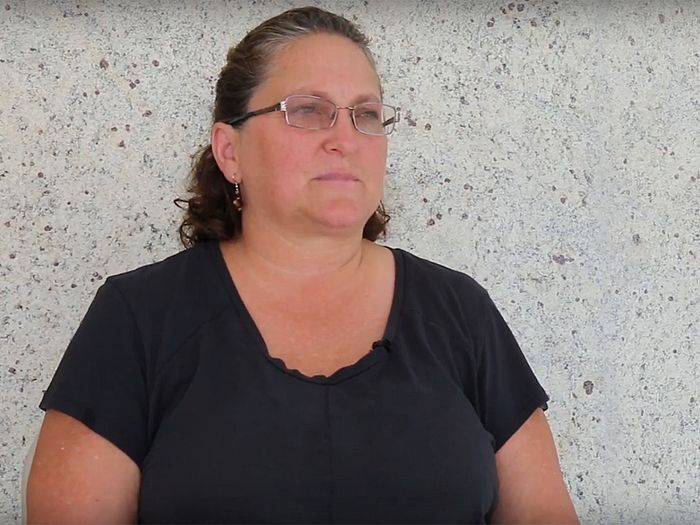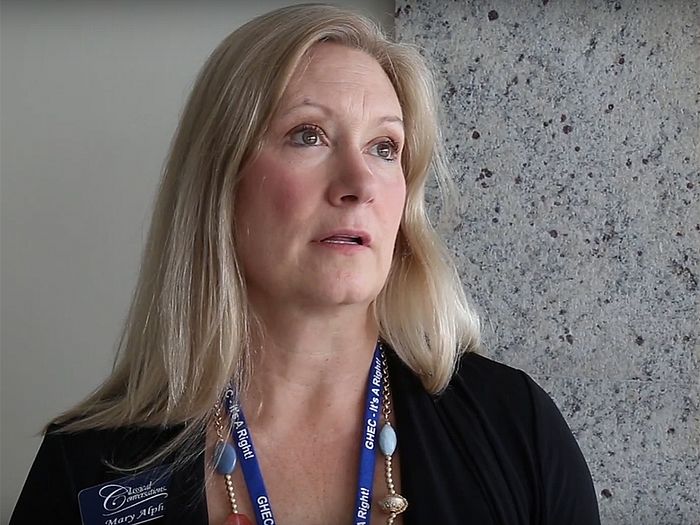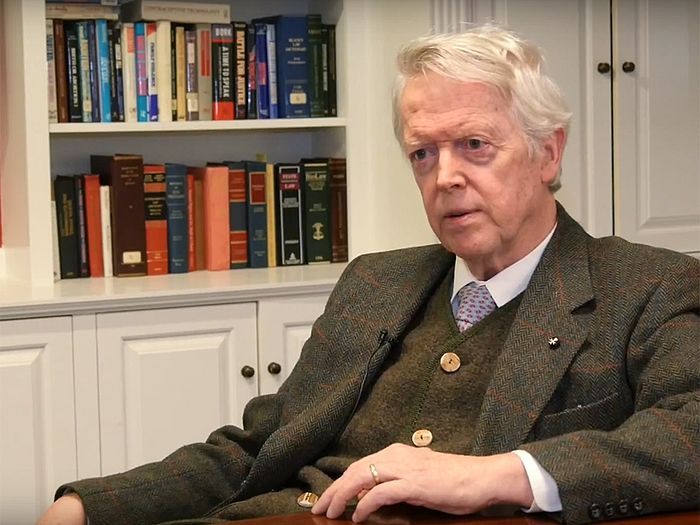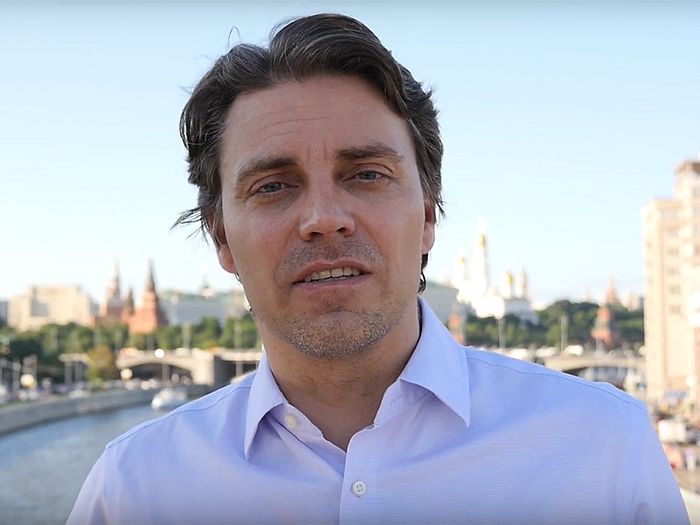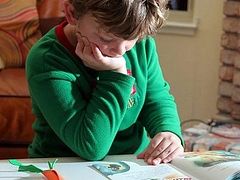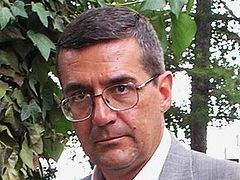The following film, “Lessons of Standardization”, was created by Alexey Komov, Ambassador of the World Congress of Families to the U.N., and his colleagues, who together have been pioneering homeschooling in Russia, making use of tested home schooling methods in the U.S. A transcript of the video is included below.
Education is key to everything, it shapes every human being. This is fundamentally important for the future of any nation. People who after the collapse of the Soviet Union had a great influence on the educational system of the former republics have understood it rather well. For example, in the Ukraine during the last twenty-five years, many school textbooks have been written by George Soros’ NGOs and published by them in Canada. The result is quite serious and irreversible.1
Alexey Komov:
—In Russia over the past quarter of a century the general level of education and literacy has fallen from one of the highest in the world to an all-time low. A key factor here is the accelerated destruction of the Soviet education system, without any meaningful replacement.
After the collapse of the Soviet Union many new concepts have been imported to Russia. Some of them had shown good results, but many had truly catastrophic consequences. One of the most striking examples is the reform of the education system.
A large influence on the new education curriculum was brought by NGOs related to George Soros. It is no surprise that there have been numerous attempts to smuggle so called “sexuality lessons”. In the turbulent 1990s, many brave new experiments have started in Russia.
Irina Shamolina, author of the “Classical Education in the Family” project:
The first school “reform” experienced by the parents and schoolchildren after perestroika was the prolongation of school for one more year. Why was it done? Nobody knows.
Then the entire set of manuals and schoolbooks were changed. Why for example have mathematics textbooks been replaced if they were producing superior results and our students were consistently winning many international competitions?
Afterwards, the testing system was introduced as the only way of assessing knowledge—despite the fact that it has proved to be ineffective in America and internationally.
Enlargement and consolidation of schools is currently underway. Several schools are merging into huge conglomerates. At the same time it is obvious that the more individual attention a child receives at school, the better. And rather small schools, where the principal knows each child personally, will always be much more effective than large conglomerates, where the principal or schoolmaster hardly knows all the teachers who work there.
Huge schools, endless tests, primitive textbooks, training up to 18 years of age... This resembles the American public school model. So, the current Russian educational system was imported from the United States.
And what do we know about the educational system of secondary public education in America?
Firstly, it is known for its huge budget, the largest in the world for those purposes, and the second largest in the country after the military budget—with just as shockingly low results: America is ranked only number 28 among the developed countries according to its general level of literacy.
So why has this failing system been duplicated in Russia? The question remains unanswered.
Michael Farris, J.D., LL.M, Founder and Chancellor of Patrick Henry College:
There was something dramatically changed about American public schools. There was no longer any concern about whether every child had an opportunity to learn—it was social engineering, and other grand schemes of the centralized planners in Washington, D.C., the teachers’ union; and they stopped worrying about whether or not children could read well, stopped caring about the values and morals in the public schools that had made them, really, a great place, as it was when I was going to school in the 50s and 60s.
Communist ideology was the main problem in the Soviet education system. In all other aspects it was providing quite a decent level of knowledge. Let us recall the achievements of Soviet students in international competitions. Why was it completely destroyed? Nobody knows.
The fundamental role of education has been recognized very well by American elites. A hundred years ago the Rockefeller, Ford and J.P. Morgan foundations launched a long-range program for the transformation of mass schooling in America and around the world into a well-oiled machine for the production of standardized minds, programed for mass production and consumption.
Allan Carlson, Ph.D., Founder of the World Congress of Families, Professor at Hillsdale University:
When one looks at the history of public education, state education in the United States, it’s quite clear, even from the very beginning, going back 180 years in Massachusetts in the 1830s and 1840s, that part of the plan—the central part of the plan—was to break the control of parents over their children, to turn their children into vehicles of central control and central manipulation. It was modest at the time, under Horace Mann and so on. There was a sort of residual Christianity there, not a strong one, but a residual one; but over time even that disappeared.
Ready-made solutions and the desired worldview was to be put into the heads of the masses through the television and pop culture.
State-of-the-art social engineering, mind manipulation technologies, and large-scale state propaganda have been applied, as well as the experience of the Prussian system of mass indoctrination and discipline drills. Over 4000 years of social stratification experience of the Indian caste system have also been used, where a good education was provided only to the highest caste of clergy called Brahmins and partly to the warrior caste of Kshatriya. Meanwhile the merchant caste of Vaishya and workers caste of Sudra were being prepared only to do the manual work and serve the higher classes. And the lowest class of the so-called “untouchables” was not supposed to receive any education at all.
Michael Donnelly, Director of Global Outreach at the Homeschool Legal Defense Association:
Woodrow Wilson said that what we need in America are two classes of people. We need one class of people who have a liberal arts education, and another class of people who don’t have as much education, but who can just “do the work”.
This system has been reproduced in new conditions in the West: The elite is prepared in exclusive private schools of the “Ivy League” and prestigious universities, while the masses are deprived of the ability to think critically and independently through the system of compulsory public schooling.
Austin Ruse, President of the Center for Family and Human Rights (C-Fam):
The public schools in the United States are nothing but factories of ideological propaganda for the Left. I don’t know if they want to “dumb people down”, but they certainly want to make them ideologically radical. And this is happening now abundantly on the question of LGBT and gender. They are cramming these poor children’s heads with pure poison. And at the same time not educating them. Our public school system is an utter disaster from my point of view.
With trillions of dollars spent on this system of state education, the output is exactly the one expected by those who had built this entire process.
Phillip Longman, Ph.D., director of Research at the New America Foundation:
The American education process is very much dominated by certain foundations, particularly the Gates Foundation funds all the research that is done on education at the lower levels—and that has created problems.
The end result is an easily manageable passive mass of standard consumers, never asking deep and uncomfortable questions, and unable to achieve major breakthroughs in the fields of science and culture. So, importing top international talent is of paramount importance.
This dumbing-down system has been exposed by the best teacher of New York, an award winner with 35 years of experience, John Taylor Gatto. We were lucky to record an exclusive interview in his apartment in Manhattan.
John Taylor Gatto:
The wealthy, established power, doesn’t want to put up with the competition that comes from ordinary people, and so they are retreating to ancient ways to repress it. And they work, I’m sorry to say. You take kids before they’re twelve, and ruin their minds. Then they are trapped in that consumerism, and they have to find others ways to support their back…
The low level of individualization is a common problem of all school systems and the main reason for the low quality of education.
Michael Farris, J.D., LL.M, Founder and Chancellor of Patrick Henry College.
We have nineteen grandchildren who are being homeschooled, and we couldn’t be happier with the way that it’s worked. It goes in direct contrast to what is happening in the United States’ public schools system. Throughout the period of the last 30+ years, public schools have become more and more strident, and less and less effective in trying to actually teach children how to learn. Even the basic reading and math skills are not doing well in the United States as a whole.
The consolidation of schools and the introduction of standardized tests make personalization even less attainable. An all-pervasive testing system grips even the best private schools in an extremely narrow framework and makes it impossible to use different approaches to education. So a true education is replaced by endless “test drills”.
Irina Shamolina, author of the Classical Home Education Project in Russia:
Testing is a very specific thing that must be used only in special occasions; for example, when testing the knowledge of traffic rules. Yes, the driver is tested for knowledge of the traffic rules, but it is obvious that a driving license cannot be issued only according to his test results, without any driving practice. It is the same with the development of subjects. Only in dialogue—oral or written—can we evaluate how a person thinks, how he or she understands the studied subject. Testing only reveals gaps in the possession of a set of data. A child who instead of receiving an education is actually being fed with standardization lessons cannot develop critical and creative thinking.
If we apply a system originally developed for the purpose of dumbing down the people, then we should not be surprised to receive the expected result.
Only the best private schools, such as the St. Basil the Great Gymnasium near Moscow, manage to shift the focus to the right direction.
Constantine Malofeyev, founder of the St. Basil the Great Gymnasium (roughly equivalent to U.S. high school), located just outside of Moscow:
I believe that if a person is a patriot, and if a person believes in God, then we will be able to get a lot more from these children for our nation and for our future than if we only rely on the standard testing system and their exams. Raising children according to a value system is much more important than formal education. And this is the focus of our school.
Levan Vasadze, Founder of the Kikety Private School near Tbilisi, Georgia, Chairman of Prometheus Capital Partners.
Moral upbringing is more important than formal education. Therefore the academic block in our school is just one out four blocks. On top of it we have three other areas of focus: spiritual and moral development; labor; and sports and athletics.
In many countries of the former Soviet Union, through obligatory testing system not only a very rigid state program is imposed, but also so-called “comprehensive sex education” has been introduced.
Luckily, after the collapse of the Soviet Union, homeschooling became legal in Russia. Thus a centuries-old practice of Russian nobility and educated classes has been reintroduced. Almost all the Russian aristocracy until at least twelve years of age (like Pushkin or Kutuzov), and even up to university age (Tolstoy, Borodin) studied at home. Obviously, this was not because schools were not available for those children.
Archpriest Dimitry Smirnov, Chairman of the Patriarchal Commission on the Family, Protection of Motherhood and Childhood:
—I have to say that school is harmful to a child’s soul. The natural, God-created way is that the child grows up in the family, and learns everything there. In Russia this was the case for nine centuries. Why? Because no family has ten or twenty children of the same age. And when children of the same age are grouped together, there appear the disgusting relationships of a wolf pack—where the strong suppress the weak, the impudent harass the humble, etc. At school this is inevitable and requires a great deal of art from the teachers.
Family education is not something new. In fact it is a well-forgotten old tradition. This is a form of education in which parents manage the entire educational process, deciding what, how and when their child will study. In comparison with the nineteenth century, today there is no need to resort to the help of tutors, because training materials and expert advice is easily available remotely, online.
, Ph.D, President of the National Home Education Research Institute:
Home education is thousands of years old. And it is only within the last six or seven generations that countries around the world have gone into institutionalized schooling. Throughout the history of the world, people have advanced and have all kinds of great inventions, and learning. So the modern homeschool movement is only a return to some of the best of that.
Parents all over the world are coming to the conclusion that homeschooling is probably the only real answer to the challenge of the continuous deterioration of mass education. The right of parents to give to their children the type of education that corresponds to their own religion and worldviews is a fundamental human right and should be strongly supported and protected.
Brian Brown, President of the World Congress of Families and of the National Organization for Marriage:
We have eight children, Sue and I, and we homeschool most of the kids’ lives. Now we have a great Catholic school right down the street. Why did we do it? For the same reason that a lot of Americans are moving out of the public schools. We’re now at a point where I think it’s dangerous to send your child to a public school. It’s dangerous when it comes to their faith, it’s dangerous when it comes to their morals—it’s dangerous all around.
In some countries, the education system is gradually being transformed into a repressive dictatorship. For example, in Germany or Sweden, parents have no right to keep their children away from the so called “comprehensive sexuality education”. There have even been cases of imprisonment of such parents. And this happens in well-established western democracies.
Brian Brown, President of the World Congress of Families and of the National Organization for Marriage:
That’s happening everywhere. We’re having teachers stand up and say, “Well of course I teach my students about same-sex marriage, and my same-sex marriage. And of course I teach that it’s discrimination to believe otherwise.” There is no thought given to the fact that parents are the primary educators of their children and the parents’ rights—or little thought given. Therefore you’re seeing a huge growth in homeschooling, and in private schools, private Christian schools. I think that it’s a new movement that’s not so new. People were actually homeschooling children for a long time. It’s actually in the home that kids were educated.
In the United States, this form of learning has been actively developing since the 1970s, and today there are more than 2.5 million home students.
In the year 2000 a special university has been created for homeschoolers. It is called the Patrick Henry College, and more than 80 percent of its students were educated at home.
Jack Haye, President of Patrick Henry College:
You can come to school here and have an incredible academic experience, because the ratio of students to faculty is ten to one. And so the students here—there’s no place to hide—get to know their professors, the professors are involved with their students, not only as scholars, but as practitioners and mentors as well. It’s a very unique experience for students to know their professors that well, and to be able to learn from them in that kind of environment.
This is the Barbara Hodel Center, and here is most of our student activity. There is a gymnasium, a workout room, classroom facilities, boardrooms. There is a coffee shop, a general receiving area. We actually hold conferences here because there is space. Here is our bookstore.
Hello Miss Ricky!
Alexei Komov:
What kind of book is this?
Jack Haye:
It’s the Communist Manifesto.
Alexei Komov:
Why do you have it here?
Jack Haye:
We study it as part of the development of Western culture, for understanding where it comes from, and looking at history through the eyes of faith.
Alexey Komov:
This is Solzhenitsen!
Jack Haye:
That’s exactly right. Yes, so that is one of the hallmarks of classical education. You’re reading literature from all different points of view.
Research clearly shows that the academic results for homeschoolers are much higher than that of average public schools. Those children are really forming the cultural and intellectual elite of the country.
In recent years the best American universities have created special ways of admittance for homeschooled children, and they don’t require certificates of formal secondary education from them. They compete for such students who possess critical and creative thinking.
Jack Haye, President of Patrick Henry College:
We opened our doors in 2000 with the first class, and now with the class of 2016 we are into sixteen years of operation. We have students who have graduated and are now in the most prestigious law schools and graduate schools around the country. We have two ex-students in the Supreme Court. We have had more students in the White House than any other college in America.
We teach Latin and Greek. You can see some of the books we read as part of Western culture: Dante, Milton, Homer, Shakepeare.
“Here’s a book that you might be interested in seeing (Mayakovsky). This one has the English and the Russian.”
This is one of the books we read on poetry that shows the different ways that Western thought has come to be. We look at these texts critically—what are the ideas behind this that the poet was grappling with.
In recent years, the best American Universities have created special ways to admit homeschooled children, and they don’t require certificates of formal secondary education from them. They compete for such students who possess creative thinking.
Robert Bortins, CEO of the “Classical Converstations” homeschooling platform:
Our graduates have gone on to 175 different colleges. The average acceptance rate is 100 percent. They apply to 3.5 schools on average, and many of them get academic scholarships to attend. They have gone on to become engineers, business owners, missionaries, scientists, musicians—if you can think about it, they have probably gone on to do it. They have become successful citizens wherever they are.
When teaching at home, parents have the opportunity to apply those teaching methods that are mostly suited to their particular child. Universal forced schooling made everyone forget that there are many different ways to give high quality education. The most striking example is ancient Greece, where schools in our modern sense did not exist at all. However, ancient Greece is still an unattainable golden standard of culture and science.
Leigh Bortins, founder of the “Classical Conversations” homeschooling platform.
The main difference I would say is that it’s efficient for the students, maybe more than the teacher or the system, it’s about the heart and soul of how a person learns. And so, classical education emphasizes what we call “grammar”, which is a lot of memory work, which sounds foreign and unnecessary for some people. But the reality is that we need to fill our brains with copious ideas and information so that we then have something to think about, which is what we call the “dialectic”. But knowing a lot of information and being a great thinker is only part of what an education should provide. We also need to be able to share that information with other people. And so we really focus on the skills of inputting information, processing information, and then teaching students how to share that information.
Now, that just sounds like common sense, correct? But the thing is that you are looking at the person you are working with instead of the textbook, or the test, outcomes, or the goals. What’s the miracle, the wonder, the joy of all of it is that when you’re looking at information and learning and discussing with a young person, or a person of any age, if you’re focusing on them and what they know, and how they know it, helping them with their skill sets and sharing that information, it turns out that they learn about all kinds of things anyway, and they learn how to learn. That is what our focus on classical education is. It’s much more than that; but’s that’s really the heart of it.
The revival of ancient educational traditions is the most popular trend in family education. Parents are united in support groups to teach children outside the school system.
Mary Alphs, Marketing Officer for Classical Conversations.com homeschooling platform:
The important part is that, absolutely, we teach the parents to walk alongside them, equip them, motivate them, to educate their children, to learn to love to be with their children, to learn the tools of learning, and to learn to ignite that love of learning for the whole family.
Classical education is based on the system proven by a two and a half thousand years of what is called trivium and quadrivium, or seven liberal arts. Thousands of the most successful and intelligent men of Antiquity, the Middle Ages and pre-Revolutionary Russia had been brought up using this system. It is an extremely effective system, which includes Latin and Greek classical language studies, literature, composition, logic, dialectics, and rhetoric.
Robert Bortins, CEO of “Classical Converstations” homeschooling platform:
The great thing about the classical model is that it is a great way to learn anything, you can apply it to anything. It doesn’t matter what your culture is, because you’re just practicing the tools of learning different subject matter.
Many intelligent people in the West are starting to realize that in fact home-educated children are actually the main hope for society. Not only because they show much higher academic results, but also because they are much more active socially. They are more successful in the development of their careers, and in the building of their family life.
Christoper Mannon, Ph.D, Humanae Vitae Campaign at the Population Research Institute:
Our daughter (we’ve only been blessed with one) finished homeschooling and she’s now a freshman at Stanford University. We are homeschooling advocates; and our little town has so many homeschoolers, that it must be the size of… there must be a thousand homeschooled kids in the county, and this is one of the smallest counties in Virginia. Homeschooling is a terrific opportunity for families to continue to be responsible for their children and to respond to the natural and divine law in terms of having both the responsibility and the right to teach their own children and to guide their education.
Archpriest Dimitry Smirnov, Chairman of the Patriarchal Commission on the Family, Protection of Motherhood and Childhood:
The Soviet man is afraid of home education and Soviet people perceive school as a reality that cannot be bypassed, as if it needed. In fact, neither Pushkin nor Lermontov spent any time at a school.
For the most complete disclosure of each individual’s talents there must be a diversity of forms of education. The more diverse it is, the better. This is beneficial both to the families, and to the state as a whole. Here, excessive centralization and standardization only hurts. This is supported by international ratings of “Freedom of Education” in various countries of the world. Furthermore, the right of the parents to give to their children an education that is in line with their moral and ethical views and religious traditions, is a fundamental right stated in the Universal Declaration of Human Rights and other UN documents, as well as in the laws of most countries.
Micheal Donnelli, Director of Global Outreach at the Home School Legal Defense Association (HSLDA):
Following the end of World War II, when the Allies defeated Germany, the United Nations created the universal declaration on human rights, which was a response, in part, to the atrocities perpetrated by the Nazis. In Germany, homeschooling was criminalized in 1938, during the national socialist times. Of course in 1938 all the state schools were national socialist schools. Article 26:3 of that declaration states that parents have a prior right to decide how children should be educated, and that parents have a fundamental interest in deciding how their children should be educated, and that the state must respect and protect the right of parents to make these decisions, and never use education as a weapon of social policy for totalitarian reasons, which is exactly what happened in Nazi Germany—and is happening today in countries like Sweden, Germany, and in other Western countries, even in countries like the United States.
Alexey Komov, Ambassador of the World Congress of Families to the U.N.
—In Russia, family education has enjoyed legal freedom for twenty-five years, but is still in its nascent stage. Over 50,000 children are now studying this way, and their numbers are constantly growing. This form of education often times faces resistance from officials and directors of public schools. But the state should, to the contrary, appreciate, support and cherish those families undertaking the very hard work of teaching their children at home. Especially considering the fact that more than ninety percent of such families are strong, large families with three or more children. These families are the hope for the emergence of a new Pushkin, Tolstoy or Dostoevsky.

